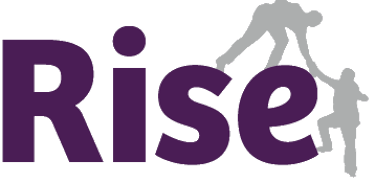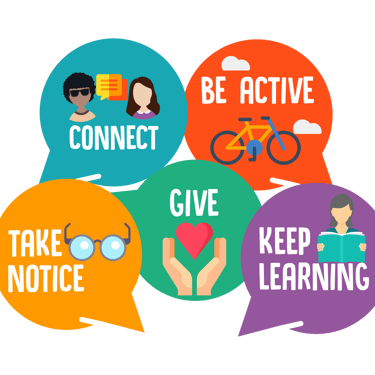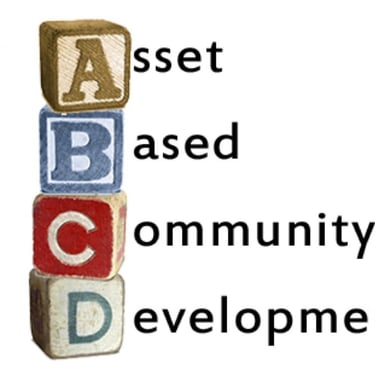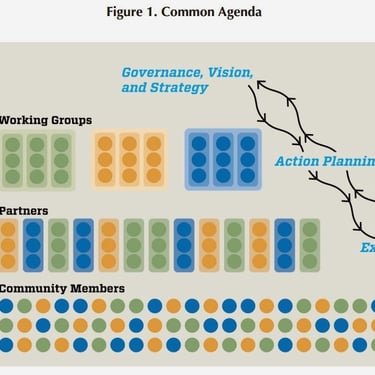Our Approach In Depth
Discover our unique strategy that sets us apart from the competition. Experience excellence today.
Our Evidence-Based Approach
Empowering Communities Through Science
At Global Rise CIC, we are committed to utilizing scientifically proven methodologies to ensure that our programs and projects create lasting, positive change in the communities we serve. By embedding research-driven approaches and principles from neuroscience, we strive to enhance community well-being, resilience, and empowerment. Every initiative we undertake is built on a foundation of evidence-based strategies, ensuring that our work is both impactful and sustainable.


A Scientific Foundation for Community Development
One of our core principles is the integration of scientific research into all aspects of our work. One of our directors is a clinical neuroscientist, bringing extensive experience in designing and driving projects with neuroscientific principles. This expertise ensures that the initiatives we develop, especially those aimed at building social capital and improving well-being, are grounded in scientific understanding.
Our goal is not only to create immediate benefits but also to test and refine our methods, contributing to broader research in the field. We are deeply invested in understanding how the implementation of social capital-building models improves well-being and resilience, ultimately empowering individuals and communities to address their own challenges.
Data Collection and Evaluation of Community Projects
At Global Rise CIC, we believe that rigorous evaluation is essential to the success of any community project. We continuously assess and collect data on the outcomes of our programs to ensure they are delivering measurable improvements in the lives of community members. This includes tracking a variety of indicators, such as improvements in mental health, social cohesion, employment rates, and educational outcomes.
By gathering data through surveys, interviews, and direct observation, we are able to analyze the impact of our projects in real-time. This ongoing process allows us to adapt and optimize our approaches based on the evidence we collect, ensuring that our initiatives remain effective and responsive to community needs.


Empowering Communities Through Research
Our commitment to evidence-based practice doesn’t stop with data collection. We believe in sharing our findings with the communities we work with, empowering individuals to understand how research can drive positive change in their own lives. By involving community members in the evaluation process, we help them see the direct benefits of our programs and how they can contribute to these outcomes.
For example, in our community cafés, we share insights from our data on how social interaction and access to services improve mental health. By making this information accessible, we not only validate the importance of community initiatives but also inspire individuals to take ownership of their well-being and encourage participation in future projects.
One of the unique aspects of our work is how we use scientific research to guide the development of community projects into sustainable social enterprises. By evaluating the success of pilot programs and assessing community needs, we identify which initiatives have the potential to become long-term, income-generating enterprises. These social enterprises not only provide valuable services to the community but also reinvest profits back into local development.
For instance, a project focused on teaching young people to repair furniture and bikes—initially developed to boost skills and confidence—can evolve into a social enterprise where repaired items are sold, creating an ongoing revenue stream that funds further training and development. By grounding these initiatives in evidence-based research, we ensure they are both effective and sustainable.


The integration of scientific processes and research enables Global Rise CIC to remain sustainable and continuously grow. Through data-driven decision-making, we can:
How Scientific Research Supports Sustainability
· Identify what works: By collecting and analyzing data, we can determine which projects and interventions yield the most significant positive impacts.
· Adapt to new challenges: Research allows us to stay ahead of emerging community needs, ensuring we are always responsive and adaptable.
· Scale successful models: Evidence from our projects informs not only local programs but also those that can be replicated in other communities, both locally and globally.
· Attract funding and support: Demonstrating the efficacy of our programs through research allows us to build stronger cases for funding, whether through grants, partnerships, or community support.
Ultimately, by embedding scientific rigor into every aspect of our work, we ensure that Global Rise CIC remains on the cutting edge of community development. Our evidence-based approach empowers individuals and communities, fosters innovation, and guarantees that we can continue to build stronger, more resilient societies well into the future.
The projects that emerged from Global Rise CIC's scientific approach include:
· Mindfulness
· Art Therapy
· Music Therapy
· Drama Therapy
· Education through Work and Training
· Yoga, Tai Chi, and other Physical Therapies
These initiatives focus on enhancing community well-being by addressing mental, emotional, and physical health through proven, therapeutic methods.
Mindfulness
Project Overview:
Mindfulness focuses on teaching individuals to be fully present in the moment, helping them manage stress, anxiety, and other mental health challenges. Through mindful breathing, body awareness, and mental clarity practices, community members can develop resilience and emotional regulation.
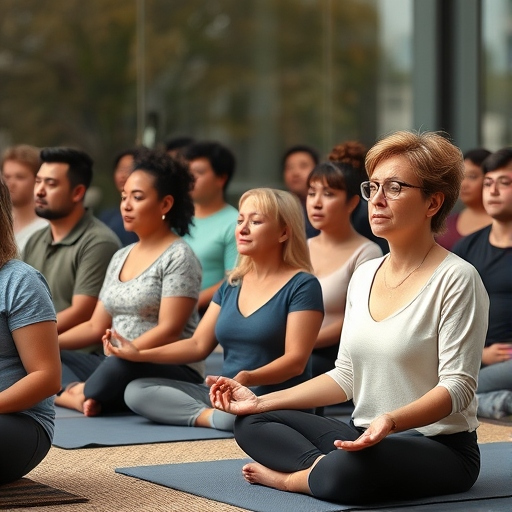

Scientific Research & Effectiveness:
Mindfulness has been widely studied in the fields of psychology and neuroscience, with research consistently showing its effectiveness in reducing symptoms of stress, depression, and anxiety. Studies using neuroimaging have demonstrated that mindfulness practices can lead to changes in brain areas related to emotional regulation, such as the prefrontal cortex and amygdala. Research published in JAMA Internal Medicine found that mindfulness meditation programs improved symptoms of anxiety, depression, and pain, particularly in people with chronic conditions.
Art Therapy
Project Overview:
Art therapy allows individuals to express emotions and experiences that are difficult to articulate verbally. This project involves creative activities like drawing, painting, and sculpture, helping people explore their inner world, improve mental health, and foster personal growth.
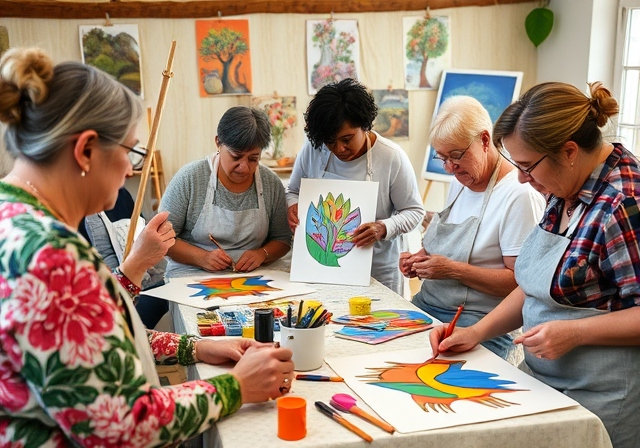

Scientific Research & Effectiveness:
Research supports the therapeutic benefits of art in improving emotional well-being, particularly for individuals dealing with trauma, mental illness, or stress. Studies have shown that art therapy enhances self-expression, reduces symptoms of anxiety and depression, and boosts self-esteem. Research from the American Journal of Public Health demonstrates that art-making can reduce cortisol levels, a key marker of stress, while also promoting a sense of relaxation and psychological safety.
Music Therapy
Project Overview:
Music therapy taps into the emotional and neurological effects of music to improve mental health, cognitive function, and social skills. Through musical interaction, songwriting, or listening to music, participants can improve mood, build communication skills, and foster connections.
Scientific Research & Effectiveness:
Music therapy has been shown to have significant benefits for mental health and cognitive function. Research has found that listening to and creating music can increase dopamine production, leading to enhanced mood and motivation. Additionally, studies published in Frontiers in Psychology have found that music therapy helps in improving emotional regulation, reducing symptoms of depression, and enhancing memory and cognitive function, particularly in elderly populations or those with neurodegenerative disorders.


Drama Therapy
Project Overview:
Drama therapy involves role-playing, storytelling, and improvisation to help individuals process emotions, build empathy, and explore different perspectives. It’s particularly effective in addressing emotional trauma, social anxiety, and interpersonal conflicts.
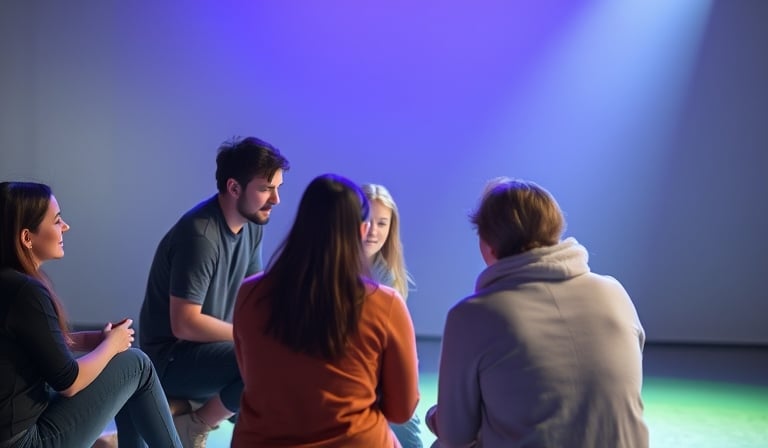

Scientific Research & Effectiveness:
Studies have shown that drama therapy improves emotional expression, self-awareness, and social functioning. It’s especially effective in trauma recovery, helping individuals process difficult experiences in a safe and controlled environment. Research from The Arts in Psychotherapy journal has documented positive outcomes in drama therapy, including improvements in emotional intelligence, social behavior, and problem-solving skills. By using dramatization, people can safely rehearse challenging situations, allowing them to build resilience and coping mechanisms.
Education through Work and Training
Project Overview:
This program focuses on providing practical, hands-on training in various trades and skills, empowering individuals to enter or advance in the workforce. The training aims to improve employability while fostering a sense of achievement and purpose.
Scientific Research & Effectiveness:
Research shows that work-based education and training increase self-esteem, reduce unemployment rates, and improve economic stability within communities. Studies from The International Journal of Educational Research have demonstrated that practical training, coupled with community-based support, can significantly improve job outcomes and satisfaction, particularly for marginalized groups. By combining learning with real-world experience, participants build transferable skills that enhance their employment prospects.


Yoga, Tai Chi, and Other Physical Therapies
Project Overview:
Yoga, Tai Chi, and other physical therapies are introduced to improve physical health, reduce stress, and promote mental well-being. These activities involve gentle, mindful movement designed to enhance flexibility, balance, and relaxation.
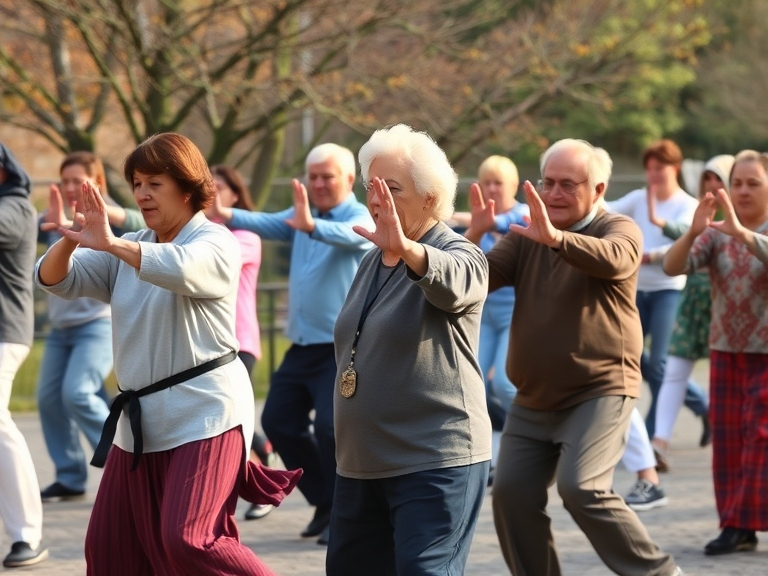

Scientific Research & Effectiveness:
The physical and mental health benefits of yoga and Tai Chi are well-documented in scientific literature. Research shows that these practices can reduce stress, lower blood pressure, and improve symptoms of anxiety and depression. A study published in The Lancet Psychiatry demonstrated that yoga has a moderate effect on improving symptoms of depression, especially when combined with other therapies. Tai Chi, in particular, has been shown to improve balance and reduce the risk of falls in elderly populations, according to research published in The New England Journal of Medicine.
Concluding Remarks and References
Each of these projects leverages scientific research to ensure effectiveness in addressing mental, emotional, and physical health within communities. By applying these proven therapeutic methods, Global Rise CIC empowers individuals to build resilience, improve well-being, and contribute to broader community development.
Mindfulness
Morone, N. E., Greco, C. M., Moore, C. G., Rollman, B. L., Lane, B., Morrow, L. A., Glynn, N. W., & Weiner, D. K. (2016). A Mind-Body program for older adults with chronic low back pain. JAMA Internal Medicine, 176(3), 329. https://doi.org/10.1001/jamainternmed.2015.8033
Marchand, W. R. (2014). Neural mechanisms of mindfulness and meditation: Evidence from neuroimaging studies. World journal of radiology, 6(7), 471.
Calderone, A., Latella, D., Impellizzeri, F., de Pasquale, P., Famà, F., Quartarone, A., & Calabrò, R. S. (2024). Neurobiological Changes Induced by Mindfulness and Meditation: A Systematic Review. Biomedicines, 12(11), 2613.
Fan, C., Wu, M., Liu, H., Chen, X., Gao, Z., Zhao, X., ... & Jiang, Z. (2024). Effects of meditation on neural responses to pain: A systematic review and meta-analysis of fMRI studies. Neuroscience & Biobehavioral Reviews, 105735.
Art Therapy
Sonker, S., Sharma, V., & Mishra, S. (2024). Impact of Art-Based Therapies on Mental Health and Wellbeing. Integrated Publications (2024)
Magsamen, S., & Ross, I. (2023). Your brain on art: How the arts transform us. Random House.
Stuckey, H. L., & Nobel, J. (2009). The Connection Between art, Healing, and Public Health: A Review of Current literature. American Journal of Public Health, 100(2), 254–263. https://doi.org/10.2105/ajph.2008.156497
Kaimal, G., Ray, K., & Muniz, J. (2016). Reduction of cortisol levels and participants' responses following art making. Art therapy, 33(2), 74-80.
Wilkinson, R. A., & Chilton, G. (2018). Positive art therapy theory and practice: Integrating positive psychology with art therapy. Routledge.
Music Therapy
Gustavson, D. E., Coleman, P. L., Iversen, J. R., Maes, H. H., Gordon, R. L., & Lense, M. D. (2021). Mental health and music engagement: review, framework, and guidelines for future studies. Translational Psychiatry, 11(1). https://doi.org/10.1038/s41398-021-01483-8
De Witte, M., Da Silva Pinho, A., Stams, G., Moonen, X., Bos, A. E., & Van Hooren, S. (2020). Music therapy for stress reduction: a systematic review and meta-analysis. Health Psychology Review, 16(1), 134–159. https://doi.org/10.1080/17437199.2020.1846580
Agapaki, M., Pinkerton, E. A., & Papatzikis, E. (2022). Music and neuroscience research for mental health, cognition, and development: Ways forward. Frontiers in Psychology, 13. https://doi.org/10.3389/fpsyg.2022.976883
Drama Therapy
Jennings, S. (2014). Dramatherapy: Theory and Practice 1. Routledge.
Giacomucci, S. (2019). Addiction, traumatic loss, and guilt: A case study resolving grief through psychodrama and sociometric connections. The Arts in Psychotherapy, 67, 101627. https://doi.org/10.1016/j.aip.2019.101627
De Gruijter, E., Wouters, H., & Haeyen, S. (2024). Perceived effects of drama therapy in people diagnosed with personality disorders: A qualitative study. The Arts in Psychotherapy, 87, 102117. https://doi.org/10.1016/j.aip.2024.102117
Education through Work and Training
Yoga, Tai Chi, and Other Physical Therapies
Brinsley, J., Schuch, F., Lederman, O., Girard, D., Smout, M., Immink, M. A., ... & Rosenbaum, S. (2021). Effects of yoga on depressive symptoms in people with mental disorders: a systematic review and meta-analysis. British journal of sports medicine, 55(17), 992-1000.
Li, J., Zhou, Z., Gao, G., & Zang, L. (2024). Effectiveness of exercise intervention in improving physical and mental status of patients with alcohol use disorders: A systematic review and meta-analysis. Plos one, 19(10), e0311166.
Seshadri, A., Adaji, A., Orth, S. S., Singh, B., Clark, M. M., Frye, M. A., ... & McGillivray, J. (2020). Exercise, yoga, and tai chi for treatment of major depressive disorder in outpatient settings: a systematic review and meta-analysis. The primary care companion for CNS disorders, 23(1), 24924.
Moyer, V. A. (2012). Prevention of Falls in Community-Dwelling Older Adults: U.S. Preventive Services Task Force Recommendation Statement. Annals of Internal Medicine, 157(3), 197. https://doi.org/10.7326/0003-4819-157-3-201208070-00462
References
Connect
admin@rise-cic.org
Services
About Global Rise
Global Rise empowers communities by developing social enterprises that turn local skills into sustainable growth. We create opportunities through education, training, and business development, building a stronger, resilient society.
+44 780 5527 830
